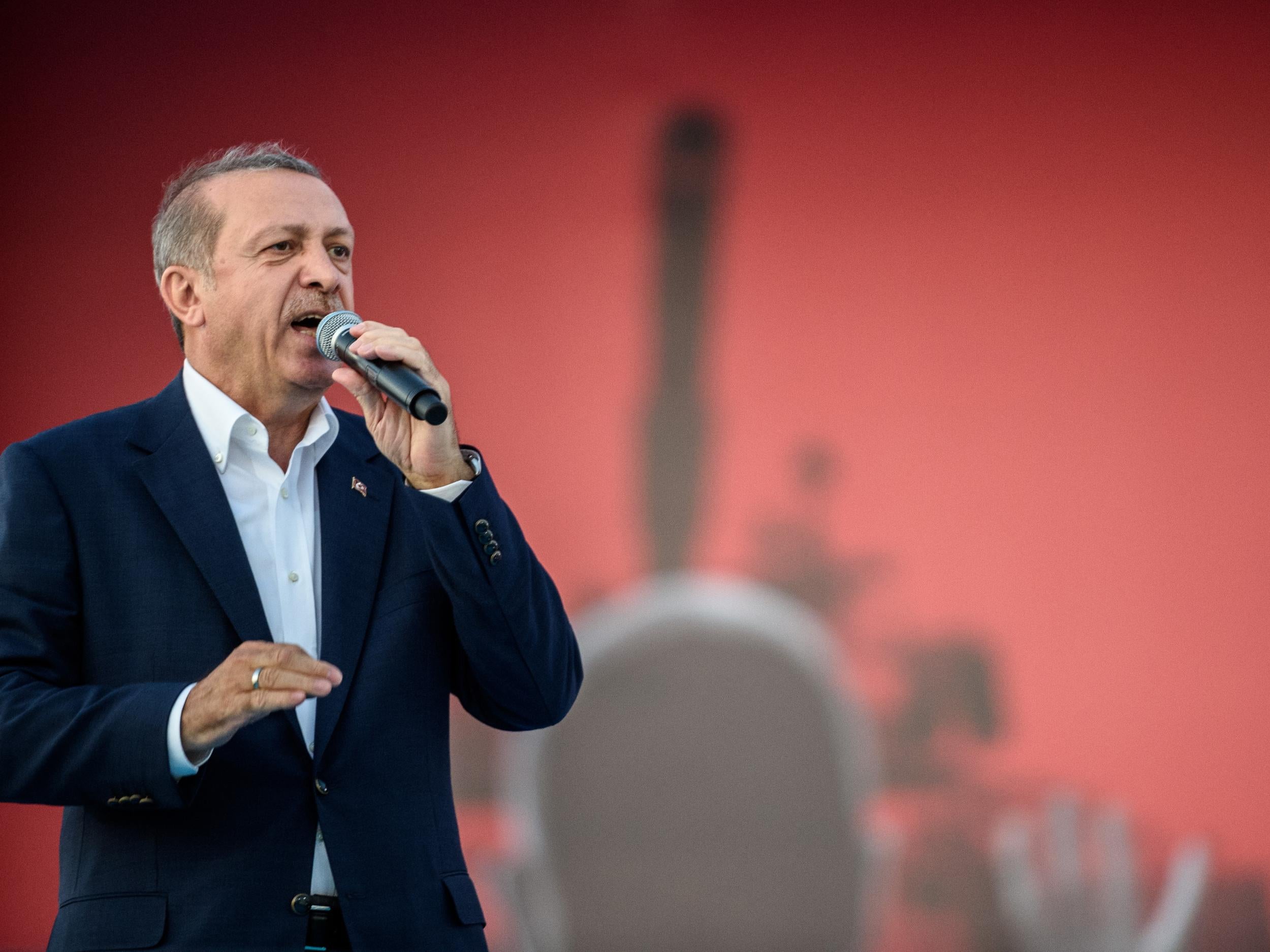Turkey's President Erdogan says he is prepared to bring back the death penalty
The proposal follows last month's coup attempt

Your support helps us to tell the story
From reproductive rights to climate change to Big Tech, The Independent is on the ground when the story is developing. Whether it's investigating the financials of Elon Musk's pro-Trump PAC or producing our latest documentary, 'The A Word', which shines a light on the American women fighting for reproductive rights, we know how important it is to parse out the facts from the messaging.
At such a critical moment in US history, we need reporters on the ground. Your donation allows us to keep sending journalists to speak to both sides of the story.
The Independent is trusted by Americans across the entire political spectrum. And unlike many other quality news outlets, we choose not to lock Americans out of our reporting and analysis with paywalls. We believe quality journalism should be available to everyone, paid for by those who can afford it.
Your support makes all the difference.Turkey's President Recep Tayyip Erdogan says he is preparing to bring back the death penalty.
The country's premier says he will approve capital punishment if parliament votes for it, following last month's attempted coup.
Speaking to supporters at a rally, he said: "My nation wants the death penalty. That is the decision of the Grand National Assembly of Turkey."
President Erdogan vowed to "destroy terrorists" threatening to harm the country, saying: "They will all be cleansed out like a cancer cell. We will find them and punish them."
The death penalty was legal until 2004 in Turkey. However, in practice it had not been enacted since 1984.
Capital punishment has been the source of much debate in the country, amid concerns that to introduce it could hamper attempts to join the European Union, as the death penalty is contrary to the EU's Charter of Human Rights.
The coup on 15 July represented a serious challenge to Mr Erdogan's presidency, however he resisted the attempt and remains in power. He blamed US-based cleric Fethullah Gulen for the coup and his supporters who are known as the "Gulen movement". It is critical of Mr Erdogan who they see as supporting a "political Islam" rather than a "cultural Islam" in his presidency.
During the coup, more than 300 people were killed and at least a thousand were injured.
Since the uprising, about 18,000 people have been detained or arrested, and tens of thousands of public sector workers have been fired or suspended.
Join our commenting forum
Join thought-provoking conversations, follow other Independent readers and see their replies
Comments